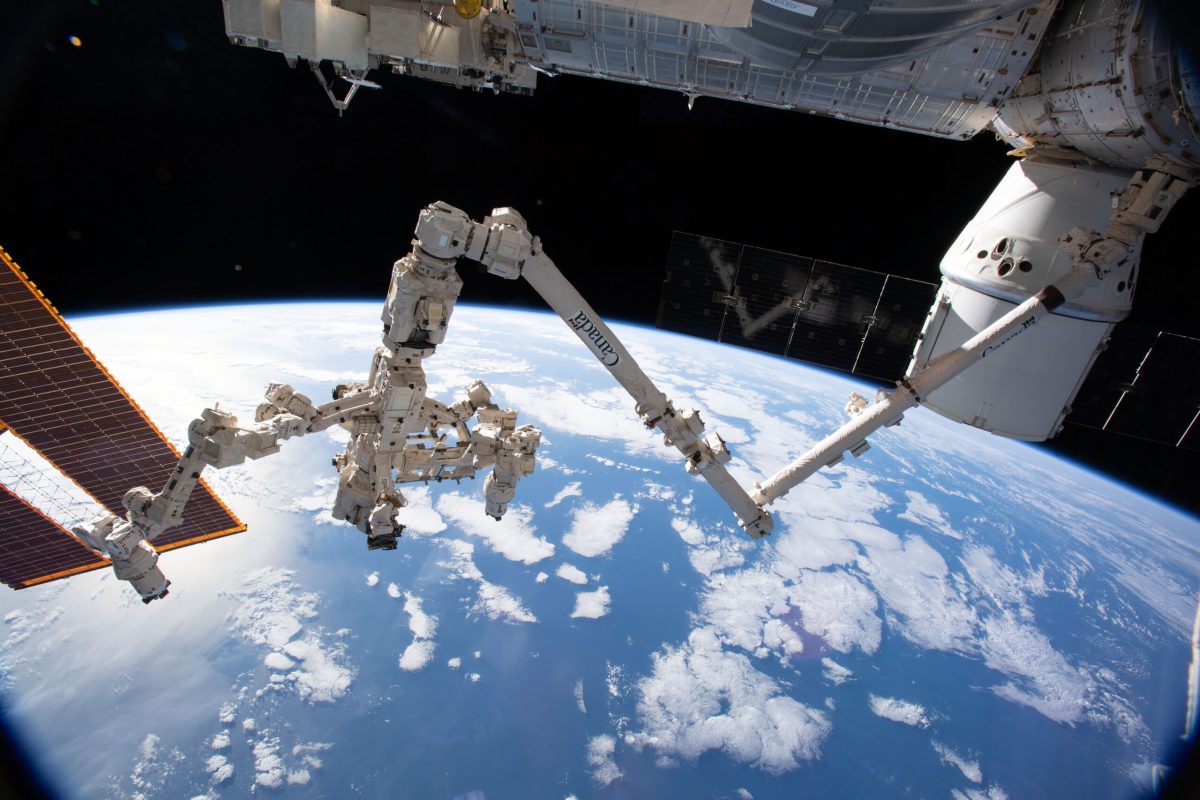TAMPA, Fla. — The Canadian Space Agency (CSA) has awarded MDA Space a contract extension worth around $182 million to continue supporting robotics operations on the International Space Station until 2030.
The contract now also includes robotics flight controller duties, in addition to the operational readiness support MDA Space has provided for the Mobile Servicing System on the ISS since 2001.
MDA Space has previously only provided training to CSA and NASA staff for operating this system, which includes the space station’s 17-meter Canadarm2 robotic arm, alongside mission planning and engineering support.
The vast majority of ISS robotic operations are conducted by flight controllers on the ground, supporting the berthing of visiting spacecraft, relocation and repair of equipment around the station, monitoring and surveying the station for damage, and assisting astronauts during spacewalks.
From January 2025, MDA Space will control the robotic operations with a team that will initially be based at the CSA mission control centre in Quebec, Canada.
Commercial push
Flight controller support is also part of a new product line of modular robotic technologies and services MDA Space unveiled April 10 called Skymaker, which the company hopes will help it secure emerging commercial opportunities following decades of government work.
The company is offering to operate Skymaker technology on behalf of customers from its recently opened mission control center in Ontario, Canada.
“There’s no need for them to become experts on space robotics and operations,” MDA Space vice president of robotics and space operations Holly Johnson said in an interview, and “try to go through all that scar tissue learning that we had over the past little while.
“We’re going to package that up into a full end-to-end mission services and operations offering.”
Skymaker comprises a kit of parts for robotic arms ranging from one to more than 15 meters in length.
The company is seeing an uptick in demand for space robotics in the commercial market, according to Johnson.
Last year, MDA Space secured contracts to build the grapple fixtures and anchor point interfaces that Axiom’s proposed commercial space station needs to be compatible with robotics.
The company is also providing robotics for one of the commercial teams NASA recently picked to work on concepts for a lunar rover that could be offered as a service.
“We are in discussions with multiple customers that have interest in on-orbit servicing, in-space assembly, and in-space manufacturing,” Johnson told SpaceNews.
MDA Space has historically been known for delivering large-scale and bespoke high-performance robotic systems, such as Canadarm2.
But Johnson said Skymaker addresses demand for a greater variety of needs with robotics covering different lengths and strengths.
“We can reach around the corner or walk around the station,” she added, “and our robotics can be one meter long to more than 15 meters long.”
“Some robotics require dexterous handling, others require crane-like operations, and so with our scalable solution we’re telling our customers: Let us do the heavy or the light lifting.”
According to Johnson, Skymaker is mainly suited for spacecraft that are at least the size of a dishwasher.
Government backing
MDA Space is also currently developing a robotic arm system for the United States-led Gateway space station being planned to orbit the Moon, representing Canada’s contribution to the program.
News of Canada’s ISS robotics extension comes a day after the country’s government proposed the creation of a National Space Council, part of a “new whole-of-government approach to space exploration, technology development, and research.”
The council was announced as part of Canada’s 2024 budget request, which included around $6 million in 2024-25 to Canada’s space agency for the Lunar Exploration Accelerator Program (LEAP), which invests in science and technology activities in lunar orbit, on the Moon’s surface, and beyond.
The Skymaker announcement is also part of a broader transformation for MDA Space, a robotics, satellite systems, and geointelligence provider that listed on the Toronto Stock Exchange after being carved out of Maxar Technologies in 2020.
The company was founded nearly 55 years ago as MacDonald, Dettwiler and Associates.
The company rebranded as MDA Space March 7, and a few weeks later named its software-defined satellite product line Aurora.
Canadian geostationary operator Telesat, Aurora’s anchor customer, has ordered an initial 198 of the satellites for its low Earth orbit broadband network Lightspeed under a contract worth about $1.6 billion. SpaceX is due to start launching the satellites in 2026.
Since separating from Maxar and becoming a public company four years ago, Johnson said MDA Space has been “able to invest heavily in the next generation of products, in roadmaps, and technologies” across all its business areas.
The company’s space robotics competitors include Maxar, U.S.-based Redwire, and GITAI of Japan.
